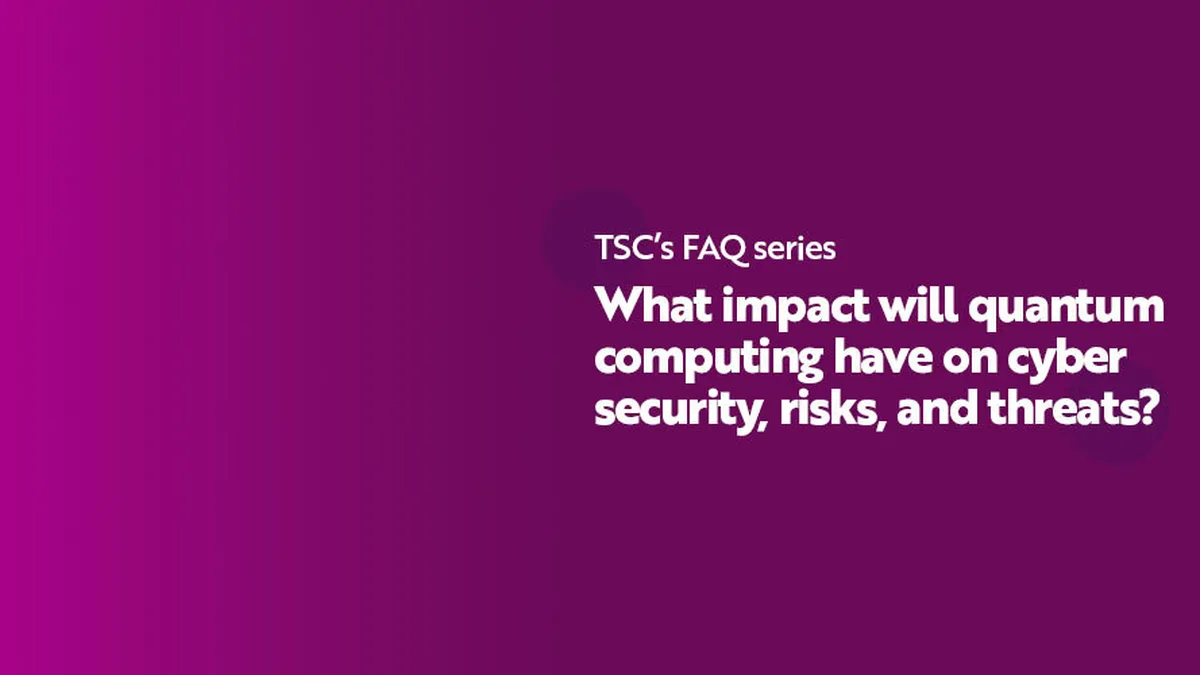
- Employee awareness
- 5 min read

Quantum computing is a revolutionary advancement that holds the promise of transforming the digital realm.
As organisations prepare for the era of quantum computing, it becomes imperative to explore its potential impact on cyber security, threats, and risks.
In this article, we delve into the intricacies of quantum computing and discuss its implications for the world of cyber security, emphasising the importance of ongoing training and awareness.
Traditional computers rely on bits, which represent either a 0 or a 1. Quantum computers, on the other hand, use quantum bits or qubits, which can exist in multiple states simultaneously due to the principles of superposition. This enables quantum computers to process vast amounts of information exponentially faster than classical computers. While this promises breakthroughs in various fields, it also poses unprecedented challenges to cyber security.
One of the primary concerns associated with quantum computing is its potential to render existing cryptographic algorithms obsolete. Many widely used encryption methods, such as RSA and ECC, depend on the difficulty of certain mathematical problems that quantum computers can solve with remarkable speed. As a result, sensitive data, communications, and transactions that were once considered secure may become vulnerable to malicious actors equipped with quantum technology.
The cyber security community recognises the urgency of addressing the quantum threat to encryption. Consequently, researchers are actively working on developing quantum-resistant cryptographic algorithms, also known as post-quantum cryptography. Transitioning to these quantum-safe encryption methods is crucial for safeguarding data and communications in the post-quantum era. Cyber security professionals must stay informed about these developments and be prepared to implement quantum-resistant solutions.
Quantum computing also poses challenges to authentication mechanisms. Traditional methods like username and password combinations may become insufficient as quantum computers could potentially break these authentication systems. This necessitates the adoption of more secure and resilient authentication measures, such as multi-factor authentication (MFA) and biometrics, which can withstand the advancements in quantum technology.
In the face of these quantum-related challenges, the role of cyber security training and awareness becomes pivotal. Organisations must invest in training programs that educate their workforce about the evolving threat landscape and the specific risks associated with quantum computing. Understanding the potential vulnerabilities introduced by quantum advancements empowers individuals to implement and adhere to best practices for cyber security.
Training programs should not only focus on imparting knowledge but also on fostering a culture of cyber security awareness and proactive behaviour. Encouraging employees to adopt secure practices, such as regularly updating passwords, being cautious of phishing attempts, and staying informed about cyber security news, can contribute significantly to overall cyber resilience.
As quantum computing continues to advance, the cyber security landscape will undoubtedly undergo profound changes. The potential threats and risks associated with quantum technology highlight the importance of ongoing training and awareness initiatives. By staying informed, adapting to new encryption standards, and fostering a culture of cyber security, individuals and organisations can mitigate the impact of quantum computing on cyber security and ensure a more secure digital future.



© The Security Company (International) Limited 2023
Office One, 1 Coldbath Square, London, EC1R 5HL, UK
Company registration No: 3703393
VAT No: 385 8337 51


